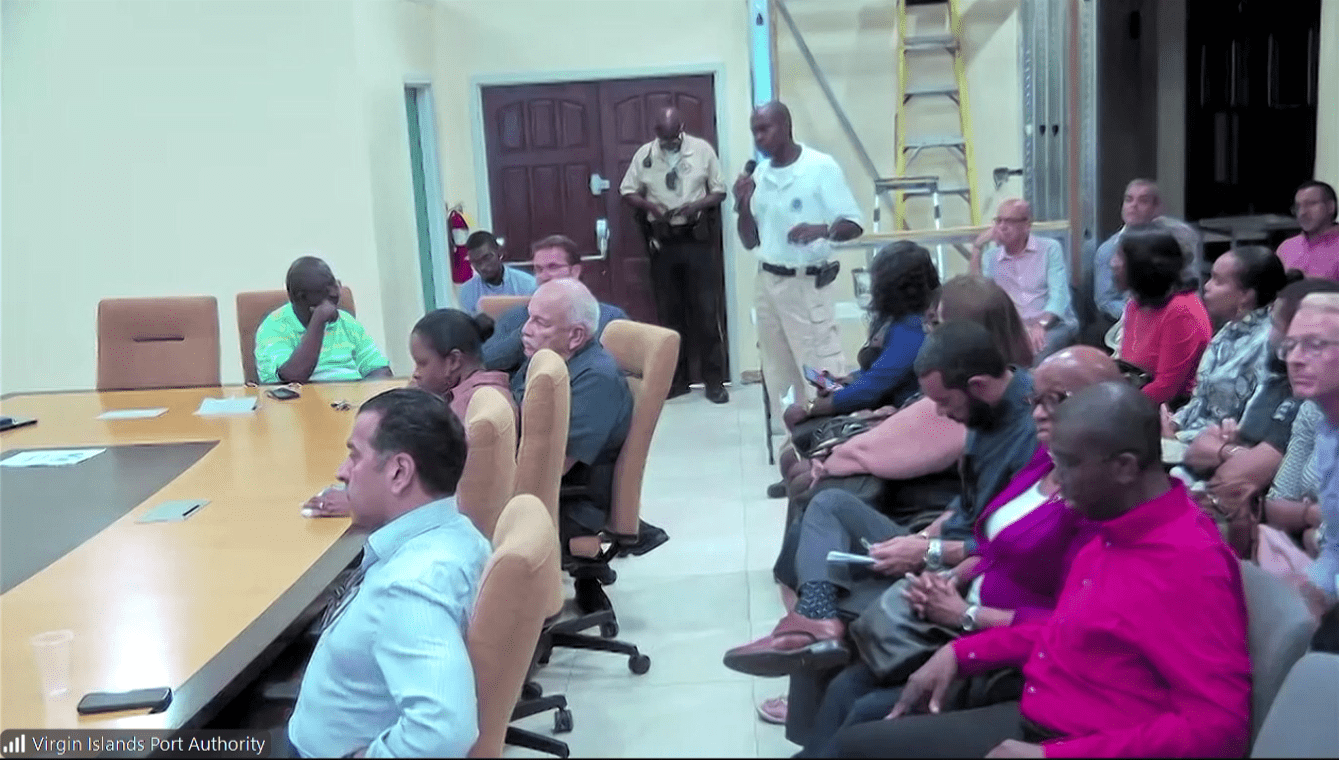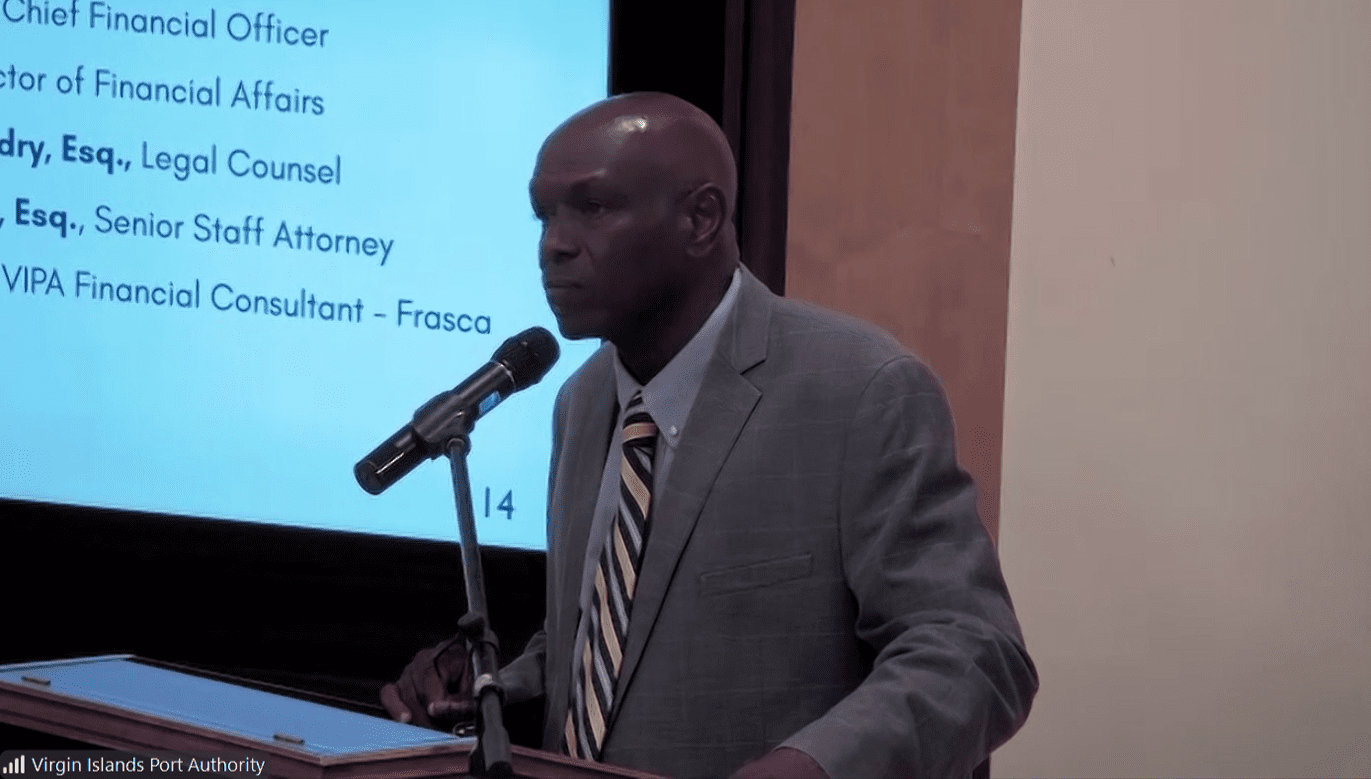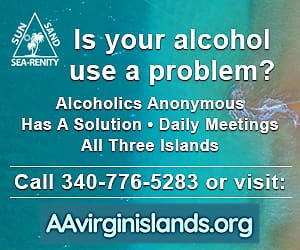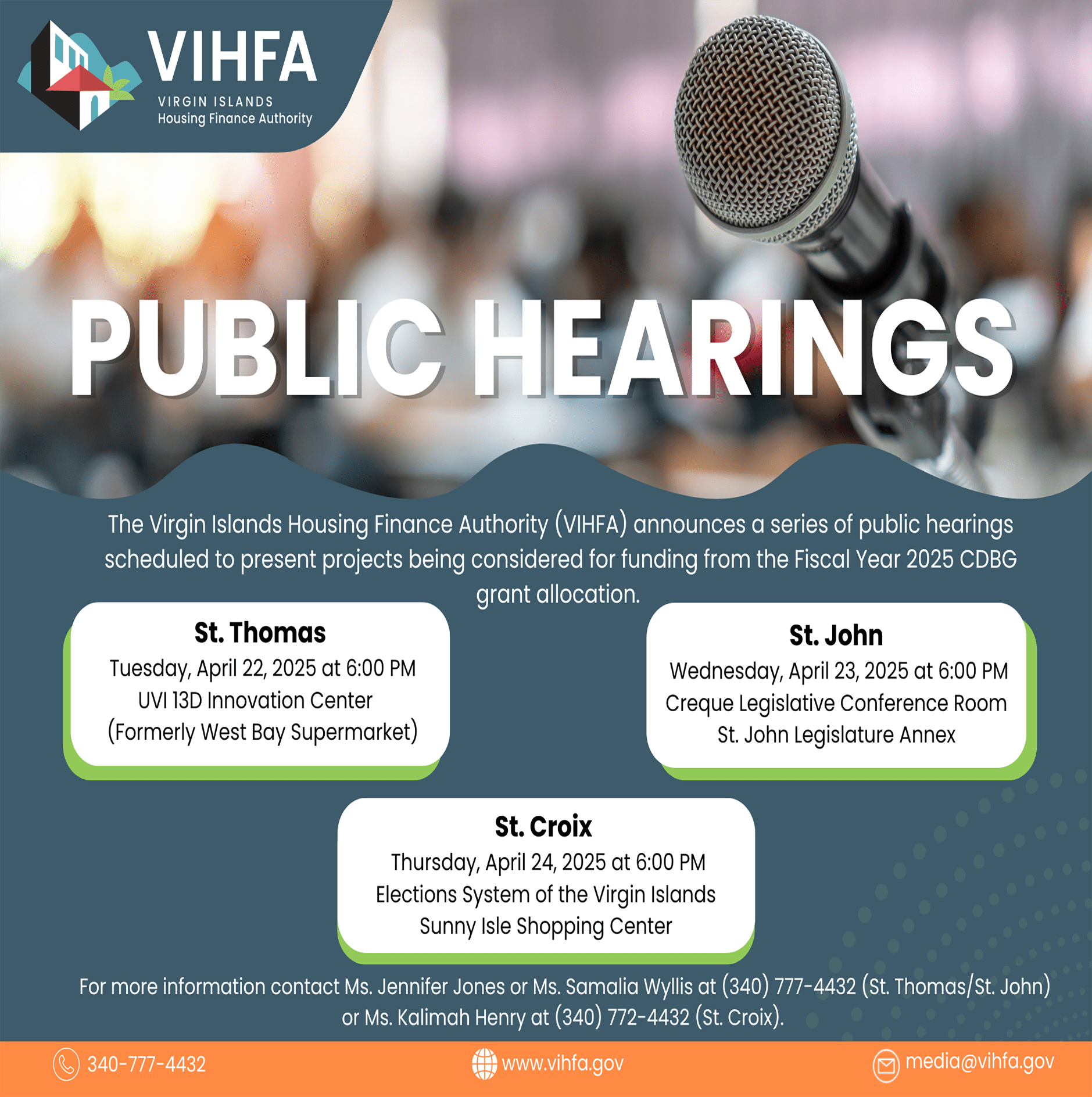
The Virgin Islands Port Authority held a public hearing Tuesday evening on St. Thomas to discuss increases in cruise ship fees expected to occur in 2025 in the St. Thomas-St. John district, as the authority, seeks to fund its upcoming projects and operations.
According to the authority’s Director, Carlton Dowe, the marine tariffs were last amended on Jan. 21, 2023. The cruise ship fees are established by tariffs via contracts with cruise lines and are applied according to the date of board approval. The latest increase was approved by the Port Authority board in September. According to the amendment, port dues will increase by $3 per passenger and will fund the Charlotte Amalie Harbor Dredging Project. The current rate is $6.84 cents and the new rate will be $9.84 per passenger. The Port Authority collects these fees directly. Additionally, the wharfage fees will increase by $0.44 cents per passenger for cruise ships entering the district and will fund the Port Authority’s marine operations and expenses. The current rate is $7.80 and will increase to $8.24. This fee will be collected by the West Indian Company when ships berth at West Indian Company Dock (WICO) in Havensight and by the Port Authority when ships berth at the Austin “Babe” Monsanto Marine Terminal in Crown Bay and on St. John.
“All cruise ships entering the harbors pay port dues to the Virgin Islands Port Authority. WICO collects a wharfage fee of all ships that use their facility,” said Dowe.
The effective date of the increases will be:
Wharfage at the WICO Dock— Jan. 1, 2025
Wharfage in Crown Bay and St. John— by April 1, 2025
Port dues in the St. Thomas- St. John district— by April 1, 2025
The marine terminal tax in the district will also remain at $1. No tariffs apply to cruise ships entering the St. Croix district. Fees in St. Croix are currently $3.45 for port dues and $3.55 for wharfage fees.
According to Dowe, the West Indian Company and the Disney, Norwegian, and Carnival cruise lines requested the Charlotte Amalie Harbor be dredged to 40 feet. But, he added that “there was no dedicated money to dredge the harbor.” Hence, the desire for the tariff increases.

“VIPA is responsible for dredging the USVI’s harbors, but does not have the financial resources to do so,” said Dowe. “The government of the V.I. is assisting with funding the Charlotte Amalie Harbor Dredging, but it will not cover all costs.”
Dowe also mentioned that the central government has set aside $17 million for the project.
Timeline for the Charlotte Amalie Harbor Dredging Project:
Issuance of Request for Proposals— end of October 2024
Request for Proposals due— December 2024
Bid award by the Port Authority board— January 2025,
Project start date— second quarter of 2025
Project completion date— 24 months after the project start date
“There are all kinds of mitigating factors that can occur,” Dowe said, adding world events and local changes can impact a project’s timeline. However, he expects the authority to be able to achieve its anticipated timeline goals.
Attendees at the hearing shared their concerns about the price increases. Some feared cruise lines would decide to go to other Caribbean destinations with lower fees or choose instead to dock at St. Croix.
“We have no written communication from anyone,” replied Dowe in response to a meeting participant inquiring about vessels who might have expressed not wanting to dock in the district due to the fee increase.
Another attendee asked about the risks to cruise lines associated with the price increases.
“We don’t see the risk to any lines in terms of what we’re putting forward,” said Dowe. “None of this was done in some vacuum.” He added, “These fees that we’re talking about in terms of doing this project, the risk of not doing it is greater than the risk that we’re embarking on.”
Dowe added that some cruise lines are charging their passengers more fees. According to the director, Royal Caribbean has already agreed, for almost a year, that their passengers will pay an additional $5 per passenger to enter the district, and once dredging is done in St. Croix, to pay an additional $5 to berth there as well.
Dowe also highlighted for attendees that for some time, berthing in St. Croix was free for cruise lines and was not financially gainful for the territory.
“For more than 25 years, all cruise ship passengers going into St. Croix was free,” he said. “It cost the authority about $400,000 every year.”
Dowe also said to attendees that if the harbors were operated by the federal government, the fee increases would not have to be applied.
“Most ports throughout the United States that have this type of activity are funded by the Army Corps of Engineers,” Dowe said. “Their harbors are federalized harbors.”
Though much apprehension was shared by attendees who work as taxi drivers, salesmen, and business owners about the wage increases, Dowe ended the hearing, informing the public that “While we may agree to disagree, leadership dictates sometimes that we do things that are uncomfortable to some. But leaders must lead. And we’re at a place where we can no longer avoid this dredging. We’ve got to move forward with this dredging project.”










